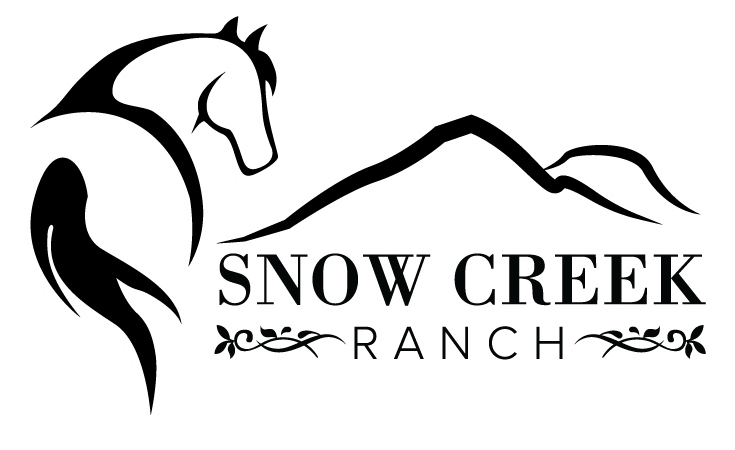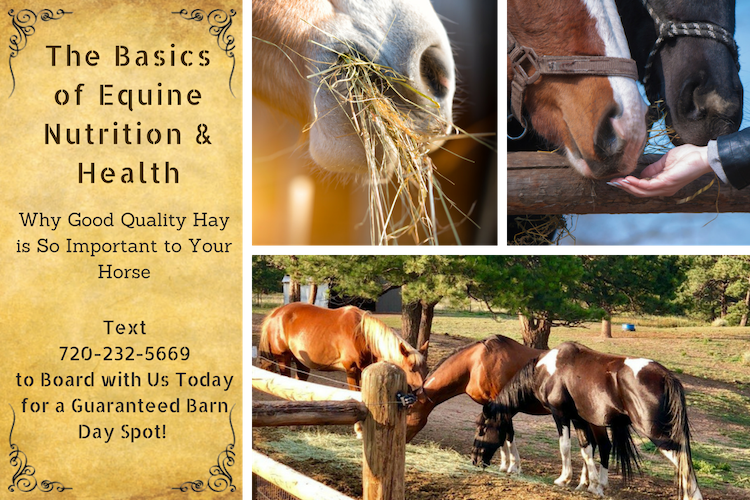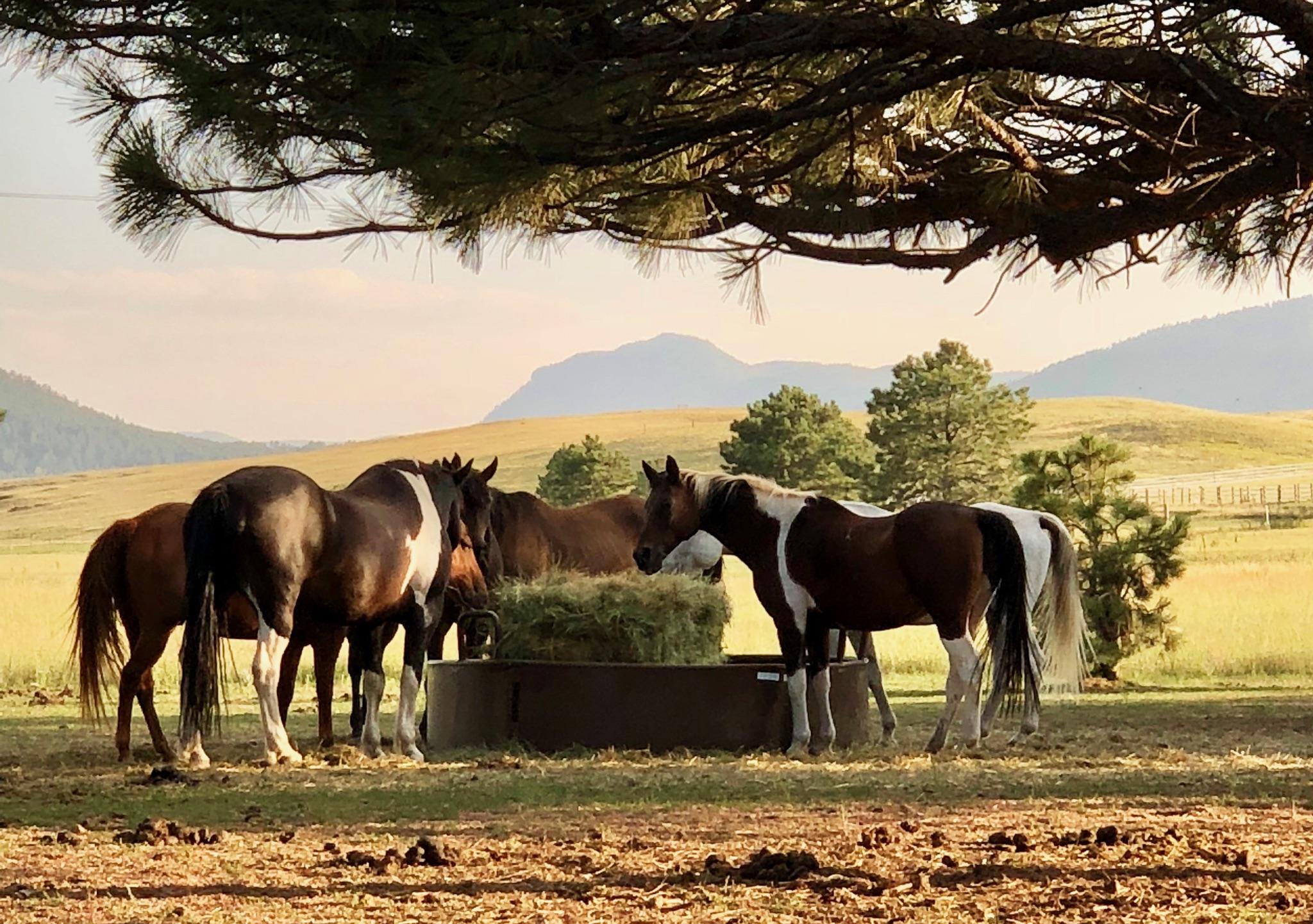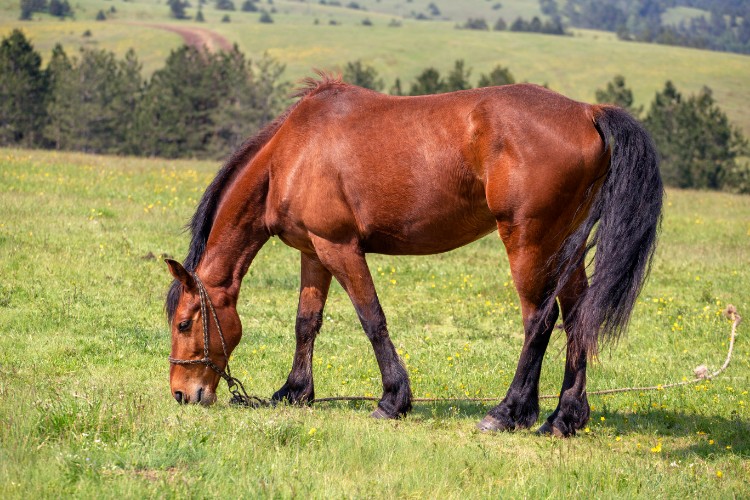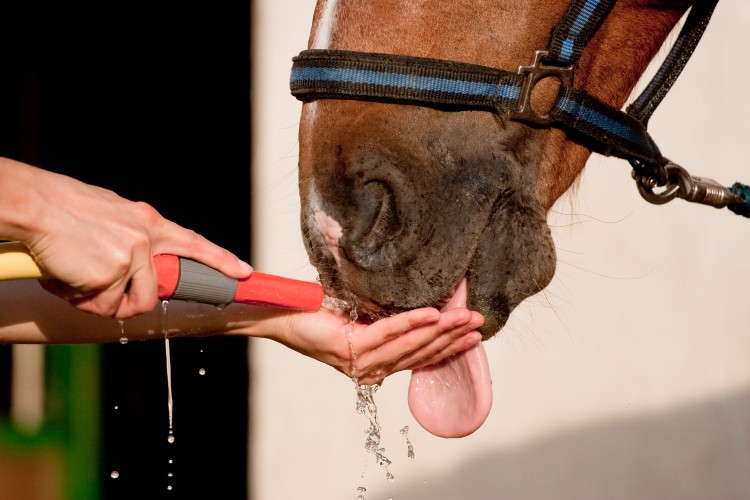The Basics of Equine Nutrition & Health
Every spring, in the run-up to Barn Day, we get to thinking a lot about basic equine nutrition and health. Attention to your horse’s health and wellness on a day-to-day, preventative basis is one of the ways Snow Creek Larkspur distinguishes ourselves from some of the other horse boarding facilities out there.
One of the most effective ways to make sure your horse stays healthy is to keep an eye on what she’s eating. Just like with people, a high-quality diet is absolutely essential to equine health and wellness. And, needless to say, the primary entree your horse will be dining on is hay – typically between 50% and 100%.
One Weird Trick to Ensure Basic Equine Health
If you’re a horse owner, you already know that they have a relatively delicate digestive system. Horses are unable to regurgitate their food, so if they eat too much, or eat something toxic, they cannot vomit it out.
In addition, their delicate balance of gut bacteria can be thrown off by rapid changes in feed, which can lead to colic, which is dangerous for horses. Horses are also sensitive to molds, so contaminated fermentable materials like lawn clippings are a dietary no-no..
The upshot is that basic equine nutrition calls for clean, consistent, high-quality feed and water provided at regular intervals.
Grazing & Foraging
Horses evolved to eat small amounts of the same or similar food throughout the day, as if they were grazing on pasture lands. We feed our tenants twice a day minimum, and as long as weather permits, the horses are allowed to pasture, enjoying plenty of sunshine, as well as access to native grasses and legumes (like clover or alfalfa).
When horses don’t get appropriate amounts of clean forage at appropriate intervals, they can get sick. Again like people, horses can overeat, or eat too quickly. Horses in a herd can undereat as well, especially if they are smaller, weaker, or generally low-status animals. It’s important that your horse boarding facility pays attention no only to what your equine pal is eating, but how much.
Cow Hay Vs. Horse Hay
One factor to look out for when scouting a horse barn is what grade of hay the owners of the facility are feeding your horses. If they are using cow hay, you may want to move along and just give us a call at 720-232-5669, because we understand not only the difference between the two grades, but the importance of paying attention to that difference as well.
While there’s not really a hard and fast definition of cow hay, there are a few things to look out for: excessive dust, mold, weeds, foreign debris, a high stem-to-leaf ratio. Hay growers will sell hay as cow hay if it got rained on for example, because wet hay can mold or start to ferment.
Because cows have a more robust digestive system (thanks to all those stomachs!), they can eat and digest just about anything – including all that dust, mold, and stems that are so bothersome to our horses.
Besides simple cleanliness, horse hay has some other advantages for basic equine nutrition as well.
- Horse hay is higher in protein and calcium than cow hay, and may also provide more energy and a higher level of total digestible nutrients, such as vitamin A. Horse hay can also have higher mineral content than cow hay, and that might prompt your horse to drink more water, keeping her well hydrated.
- Hay with a good blend of grass and legumes will also have a better amount of fiber. Since fiber has a fairly low nutrient density, horses have to eat a bit more of it throughout the day to feel full, and that keeps them from getting bored on those rare days when they have to stay in their stalls.
- Horse hay also has a better leaf-to-stem-ratio. If too many leaves came loose during harvest and baling, it is better for cows to eat because they can digest the woody, fibrous stems easier than horses can.
Obviously we will only feed your horse good quality horse hay, which she can supplement to her heart’s content by grazing in one of our beautiful, and spacious pastures.
Access to Clean, Fresh Water is Crucial
Finally, we don’t want to forget how important water is to basic equine health. Adequate amounts of water make it easier for your horse to swallow and digest her food.
One of the biggest benefits to boarding with us is our automatic watering system. Automatic watering ensures that your horse has access to plenty of safe, healthy drinking water. It also allows your horse’s water to remain cool in the summer and warm in the winter. Plus, automatic watering is water wise, saving water and helping to improve our stewardship of this beautiful land.
Douglas County Permitted Horse Boarding – Conveniently Located Between Denver & Colorado Springs
Snow Creek Ranch offers Horse Boarding, Riding and Trick Lessons, and easy access to Douglas County Trails and Open Space.
Text 720-232-5669 or email us to arrange a tour and to ask us any questions about how we care for the basic equine nutrition and health of your horse.
